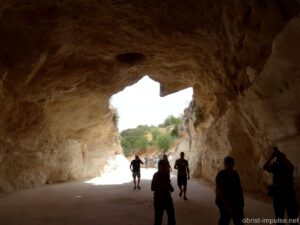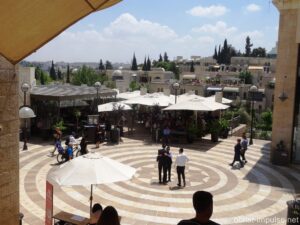 “Even though I walk through the valley of deep darkness, I will fear no evil, for you are with me.” Psalm 23:4
“Even though I walk through the valley of deep darkness, I will fear no evil, for you are with me.” Psalm 23:4
In times of need, David goes with God on “you”. He realizes: God is there.
When we come to the limit of understanding, the path of trust in God begins. God presents Moses himself as the one who is (Exodus 3:14). He is present yesterday, today, and tomorrow.
It is a mystery that we draw closer to God in times of need. Job confessed at the lowest point in his life: “Now my eyes have seen you” (Job 42:5). Suddenly we experience how God carries us through and how he holds us.
When everything is getting dark, it helps to be close to the one who knows the way.
 He leads me in “circles of justice”. David chose a Hebrew word that means circle (מעגל). It looks, in some ways, as if he says God is leading him round in circles! But there is some profound truth in this.
He leads me in “circles of justice”. David chose a Hebrew word that means circle (מעגל). It looks, in some ways, as if he says God is leading him round in circles! But there is some profound truth in this. Others translate: “He refreshes my soul” or “He brings my vitality back”
Others translate: “He refreshes my soul” or “He brings my vitality back” The word translated “still” has the Hebrew word for “comfort” in it, so restful, comforting waters.
The word translated “still” has the Hebrew word for “comfort” in it, so restful, comforting waters. The Good Shepherd causes me to stretch out and lie down in pleasant grass or pastures.
The Good Shepherd causes me to stretch out and lie down in pleasant grass or pastures.